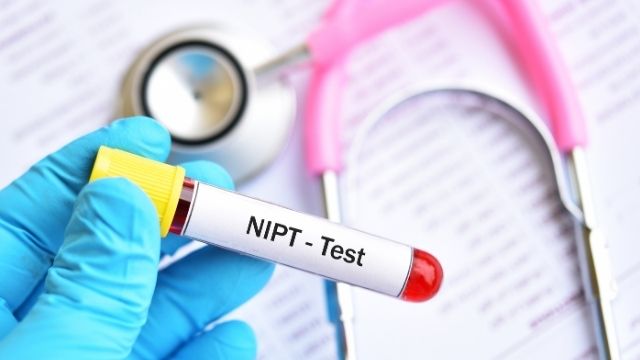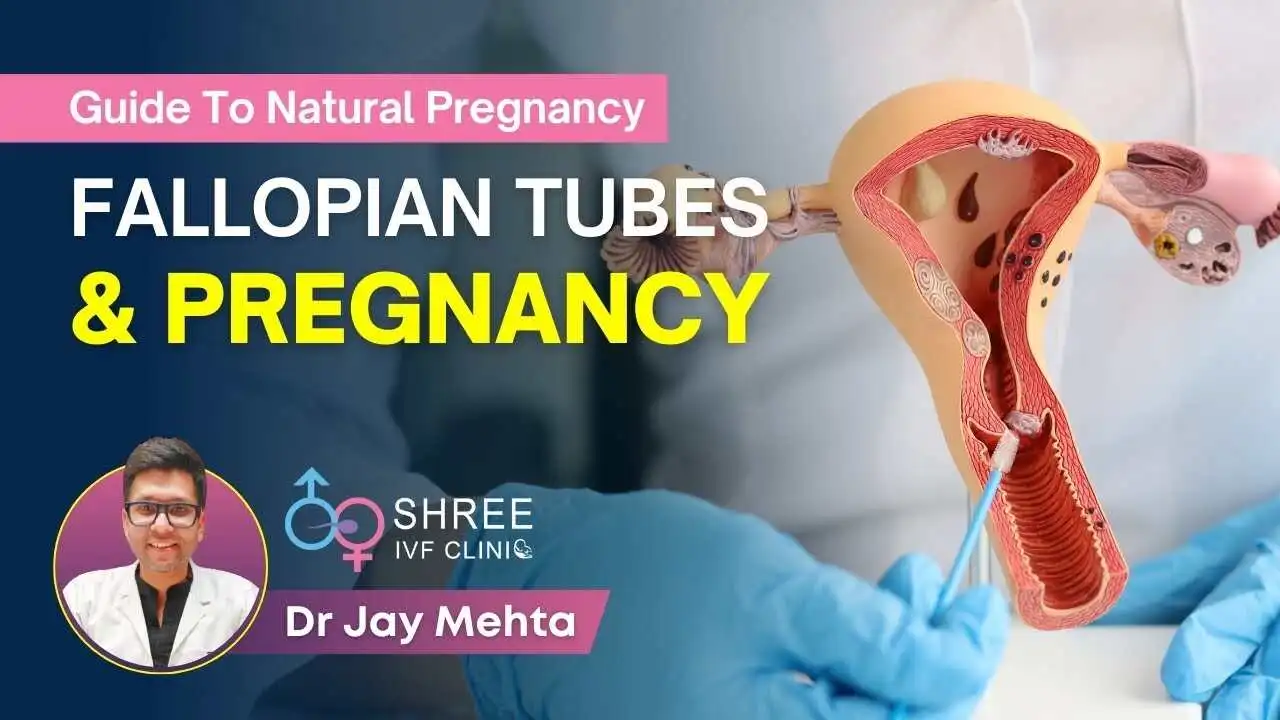NIPT

What is Noninvasive Prenatal Testing?
Non-invasive prenatal testing or NIPT is the method that detects the fetus’s possibility of having genetic abnormalities or chromosomal disorders. NIPT can only see the high and low risk of a genetic condition. This makes it a screening test instead of a diagnostic test. Sometimes the chromosome’s structure changes as a result of missing or duplicated segments of a chromosome. NIPT includes screening for such additional chromosomal disorders. It also detects Turner syndrome, Down syndrome, Edward syndrome, and patau syndrome.
Everything You Need to Know About Non-invasive Prenatal testing
Purpose | Procedure | Indications | Accuracy | Who may want it | Steps | Advantages | Cost
What does NIPT test for?
NIPT essentially looks for an additional or misplaced copy of the X and Y chromosomes known as sex chromosomes. It also detects Edward syndrome (trisomy 18, which is caused by an extra chromosome 18), patau syndrome (trisomy 13 as a result of an additional chromosome 13). And Down syndrome (trisomy 21, which is caused by an extra chromosome 21) can also get detected.
How is the NIPT done?
A simple blood test with the mother’s blood helps to determine any signs of abnormality. The doctor will match NIPT’s report with that of the mother’s first-trimester ultrasound or nuchal translucency screening. It will decide whether there is any need for further tests or not.
Indications for NIPT
High-risk women in pregnancy are advised to take NIPT. High-risk women include women with higher maternal age, I.e., above the age of 35, prior affected pregnancy, unusual fetal ultrasound detection. Another reason is when the serum screen report is positive, past personal or family history of a genetic disorder.
How accurate is NIPT result?
The result is usually 99% accurate because it is noticed that the condition affects less than 1% of all children born. A diagnostic test such as amniocentesis is much recommended along with NIPT to have an accurate result. A high possibility report is provided by the NIPT when a condition is absent in the fetus. NIPT is reliable than traditional screening tests.
Who it’s for and when it’s done?
NIPT is carried out between 9-10 weeks of gestation to the end of the pregnancy. Some parents opt for regular screening initially and then decide to get a NIPT if the traditional screening report comes with a high chance or positive rate. It is not recommended to go after a conventional screening if blood has been already collected for NIPT. For Extra information about the baby’s health, it is advised to take a nuchal translucency ultrasound in the first trisemister.
It is generally for women at a very mature age of childbirth above 35 years of age, a couple having a personal or family history of chromosomal deformities.
Steps involved in NIPT
It examines cell-free DNA from the mother’s blood sample, a combination of fetal and maternal DNA to screen for genetic disorders like Down syndrome, Edward syndrome, and patau syndrome. In the beginning, the plasma is separated from the mother’s blood. Cell-free DNA is then taken out from the plasma and then examined. Data is created from the composed cell-free DNA. Advanced research is finally applied to the data.
NIPT is recommended for high-risk mothers exposed to specific issues that arise the possibility of having a child with genetic deformities. It is a non-risky process where a simple blood test can detect chromosomal abnormalities (if any). The report is simply presented with a clear “yes” and “no”, and it is delivered within a very little time, which is advantageous as it makes sure of early treatment. It is especially very helpful for anxious mothers.
There are no highlights of certain genetic conditions in NIPT, making it a little reliable until conducting other tests such as amniocentesis or CVS. NIPT is not suggested when there are more than two fetuses in the womb, i.e., triplets, or quadruplets. Research has shown that NIPT induces termination in Down syndrome tendencies which is a social issue gaining concern with the increasing technical effect on our lifestyle.
Advantages of NIPT
- NIPT’s risk factor is deficient as the process contains only collecting a blood sample from the mother. NIPT has a reputation for giving accurate results for maternal blood samples on high-risk and low-risk pregnant women. Amniocentesis is a very much recommended test along with NIPT to get a precise result. Still, it includes the risk of miscarriage and also sometimes it is not as promising inaccuracy as it claims to be.
- It is a quick method to detect genetic abnormalities. It generally takes 10-14 days for a rapid answer to chromosomal deformities. The report is usually with “yes” or “no”. Quick delivery of the information helps couples a lot to proceed further.
NIPT test cost
A single test of NIPT initially prices at Rs.50, 000 to Rs.60, 000 in India which is now Rs.25,000. The initial high rate of the tests is because the doctors sent the samples abroad for examination. This is due to the lack of labs in India, but now some labs have started doing the tests within the country. It resulted in the lowering of the price.

Google Reviews

Ankita Katyal

I am incredibly grateful for Dr. Jay's exceptional support throughout my IVF journey. Dr Jay has been like God sent an Angel for us. From our very first meeting, it was clear that Dr. Jay was not only a highly skilled and knowledgeable professional but also someone who genuinely cared about my well-being.
From my first meeting, he was very clear transparent, and straightforward about my protocol, treatment line, and success rate. After two difficult IVF cycles that failed, I was beginning to lose hope.
However, Dr. Jay’s unwavering encouragement and meticulous care helped me stay positive and focused. Thanks to God and of course to his expertise and dedication, WE FINALLY ACHIEVED SUCCESS!!!!!

Krish A

Dr Jay Mehta is the best Fertility doctor. I am glad to have IVF done with Jay sir.
This unit is very ethical and very honest at work. In my previous IVF cycle, I did not have embryos in Chennai. I was here and Dr and team had told me not to worry. I was given end to end transparency about my embryos and I was lucky to become pregnant in the 1st cycle here, though I was told that the success rate will be about 25 to 30%.
IVF space is competitive, but these guys don't do any Ads on Google. And still if you search, Dr Jay is ranked no.1. I was extremely impressed with that and I am happy that I took a call to travel to Mumbai from Chennai.
I am thankful to the entire team for handling my case nicely. And May God shower the team with his choicest blessings.

Forum Shah

I visited 3 years back for my IVF treatment at that time and also got good treatment with Dr. Jay Mehta … the best part is he would tell me straight away whatever the cause and outcome would be.
This time also I came for Endometriosis treatment n within 3-4 days decided to get operated as there was no looking back as I trust him for his treatment. Thank you Dr once again for the right advice 😊

Deepak Jagadale

Dr Jay Mehta and team are simply excellent people and brilliant outcomes in Fertility services. Very very honest and humble doctor.
Thank you for the valuable guidance during the IVF process and the excellent and no hidden costs during IVF procedure. For middle class people it's a big relief.

Avinash Jain

Dr. Jay Mehta is a result-oriented specialist in his field and the best we could ask for, in a Metro city. His line of treatment for IVF is different from other IVF clinics.
The support provided by doctors and staff as well as all other attending doctors is phenomenal. We are very satisfied and will also highly recommend to others the IVF treatment at Shree IVF Clinic Mumbai.

Vijaya Garg

Dr. Jay Mehta is one of the best gynaecologist doctor of our India. I trust him faithfully and would like to recommend each and every one that don't waste time moving here and there to another doctorand .
I m sharing my experience I wasted my time mand oney by moving from one doctor to other and my problem was unsolved I'm thankful to Dr. Priyanka Shukla mam of trident hospital for suggesting Dr. Jay Mehta sir for my treatment . Now I'm pain-free...Thank you Dr. Jay Mehta sir... you are really my Boley baba shiv shsmbu. I m thankful to all the staff members of Shree IVF hospital
Blogs

Best Sex Position to Get Pregnant Naturally
Best positions to get pregnant—try missionary or using pillows under your hips. Small changes can boost your chances of conceiving

Importance of the Fallopian Tubes in Fertility
Blocked fallopian tubes can prevent natural pregnancy. Understand their role and explore solutions for boosting your fertility
Video

Best Sex Position to Get Pregnant Naturally
Best positions to get pregnant—try missionary or using pillows under your hips. Small changes can boost your chances of conceiving

Importance of the Fallopian Tubes in Fertility
Blocked fallopian tubes can prevent natural pregnancy. Understand their role and explore solutions for boosting your fertility
About Authors

Dr. Jay Mehta
Fertility and IVF Specialist
Dr. Jay Mehta is the Scientific Director of Shree IVF Clinic. He is a well-known Fertility and IVF Specialist and also among few doctors in the country who specializes in Embryology and Andrology.
